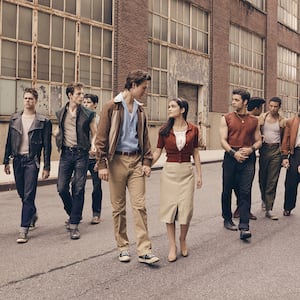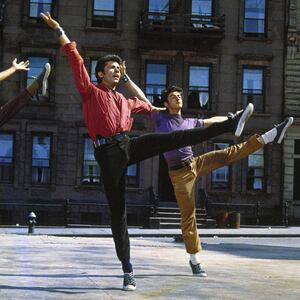When it comes to my identity, I highlight three things about myself above anything else: I’m a woman, I’m Puerto Rican, and I’m a full-fledged theater person. I grew up thinking that everyone, not just my family, ate arroz con gandules (rice and beans) and pernil (pork) at their holiday meals. And I was barely 9 years old when I had my first solo in a Philadelphia community theater production of Annie.
This is why when the casting news came out about Steven Spielberg’s film remake of the West Side Story musical I was ecstatic beyond belief, and then incredibly disappointed. Once again, the actress playing the character of Maria is not Puerto Rican, and I can’t understand why.
Before you grab your pitchforks (or in the context of this piece, your pocket knives and chains) I know the effort that director Spielberg put into getting this film “right,” as he should have. It’s common knowledge that the folks the first time around got the movie very, very wrong. He canvassed students and professors from the University of Puerto Rico to make sure that Puerto Ricans were represented correctly in the movie, even asking what they would like to see added in. He casted Hispanic actors to portray the characters of that ethnicity in the film, which is already way more than original directors Robert Wise and Jerome Robbins ever did. He also definitely did not want Rita Moreno, who is in the remake of the film and the original, forced into wearing brownface this time around. Seriously, that happened. Even Moreno herself, who is Puerto Rican, put her stamp of approval on the film, telling the Chicago Sun Times that Spielberg “corrected all that stuff,“ and that “every Hispanic [character] is actually Hispanic.”
However, in addition to identifying as a Puerto Rican theater nerd, I’m also a perfectionist and Spielberg missed a spot. He cast actress Rachel Zegler to play the part of Maria. I can’t deny it, she’s incredibly talented. Unlike the original Maria, Natalie Wood, she’s Latina. But, Zegler is not Puerto Rican. She’s Polish and Colombian. As much as I want this to be enough for this remake to feel “right,” it just doesn’t. When I sent the casting news to my mother, who is also Puerto Rican and whose own mother loved the original film, her response was less than thrilled. Frankly, she was pissed.
“I hate that, again, Maria isn’t represented by a Puerto Rican actress. It’s not like there aren’t any [Puerto Rican] actresses out there. I won’t see it,” she texted me.
I agreed. Colombians and Colombian Americans have their fair share of struggles and triumphs in this country and I have no issue with Zegler. I have an issue with Hollywood once again fumbling the easiest of opportunities to elevate a Puerto Rican actress. They seem to think that as long as the actors are Hispanic, that’s enough.
Except it’s not, to me or to other Puerto Ricans so thirsty to see themselves represented on screen they might collapse from dehydration. The choice further perpetuates the stereotype that Hispanics in this country are a monolith, which is apparent every time someone “jokes” to me about how Mexicans or Puerto Ricans or Cubans are all the same, or when people call on Puerto Ricans, who are Americans, to be deported.
Lin Manuel Miranda’s movie adaptation of his play In the Heights captured a slice of the poor and working-class Latinx experience in New York but considering how diverse each of our cultures is, one movie barely scratches the surface of our stories. We have Puerto Rican actresses starring in films already, like Rita Moreno and Jennifer Lopez and Zoe Saldana, but West Side Story is one of the few movies that centers the story on our specific experiences.
It should be a piece of art we could point to and say, yes, this is us and our experiences and our grandparents’ and great-grandparents’ experiences as Americans who weren’t and still aren’t fully accepted as such. What does it say about representation in film when the starring character is specifically supposed to be Puerto Rican, yet casting chooses someone who is not?
Perhaps the decision would feel less like a jab if the United States, or non-Hispanic America rather, had supported Puerto Rico and the assimilation of Puerto Ricans into mainland culture throughout history and not stalled on Hurricane Maria debt relief, refused Puerto Rican American citizens health care, or been part of more sinister actions against the territory’s people—including the sterilization of Puerto Rican women for 40 years without their full consent.
Maybe it wouldn’t matter so much if there was an abundance of stories told about Puerto Rican experiences, the experiences of people who make up an entire territory of this country, many of whom are fighting for it to become a state. But there isn’t. So I'll tell you what this choice says to me: There were no Puerto Rican actresses good enough. You’re not good enough. But hey, at least this film doesn’t include the line “Let it sink back in the ocean.”
Maybe a third remake of the film will finally feature a truly Puerto Rican Maria. And this theater person, and her mom, will truly look forward to seeing it.






